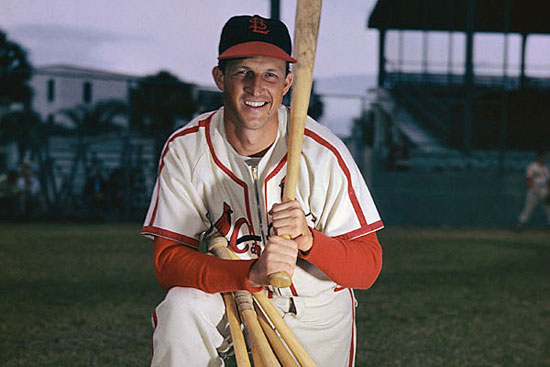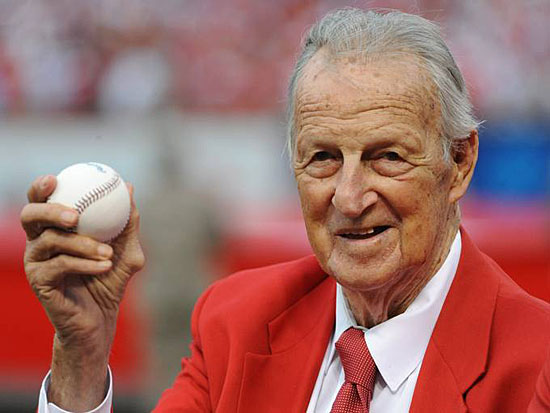Stan the Man and an L.A. boy
January 24, 2013
“I’d like to talk to Stan Musial.”
I was a baseball-crazed 11-year-old when I made that pronouncement to the telephone operator at the old Hotel Statler at Wilshire and Figueroa. I’d learned from a feature in the Sporting News that the St. Louis Cardinals were staying there during a series with the Dodgers—and I was determined to talk to Stan the Man, the visiting team’s star outfielder.
The nickname was spot-on. During a career spanning more than two decades, Musial would ultimately win seven batting titles, appear in 24 All-Star Games and set scores of records. He was that rare player who was elected to the Hall of Fame on the first ballot. Still, despite the gaudy numbers, he was also known as a humble gentleman, with little of the flash of such famous contemporaries as DiMaggio, Mantle and Mays. Musial spoke softly but carried a very big stick.
So I guess I shouldn’t have been surprised when he picked up the phone in his hotel room. But I was. He caught me off guard in my ruse as a radio sportscaster named Bob Price. (I didn’t think he’d bite on a name like Zev Yaroslavsky.) Trying my best to sound older than my pre-teen years, I asked a series of questions about the team’s strengths. He thoughtfully answered each, offering particular praise for a young right-handed pitcher named Bob Gibson, who’d one day join him in Cooperstown. Because I didn’t expect to actually talk to Musial, I quickly exhausted my list of questions.
I closed the “interview” by melodically saying, “Thank you, Stan Musial, for being on our sports show.” To which he said: “You’re welcome, son.” Turns out, he’d been playing along from the start, so free of self-importance that he was willing to take a few moments to give a kid a memory of a lifetime. Imagine that.
Last Saturday, at the age of 92, Stan Musial passed away, and that memory from the late 1950s came back to me with the power of one of his mighty swings. I know that, given the security concerns of today, such a phone conversation between a boy and a ballplayer would be highly unlikely. But I also wonder how many of our super-star athletes even recognize, as Musial did, the obligations that come with fame. Celebrity is not an entitlement. Forgive the cliché, but whether in sports or politics, you’ve got a responsibility to be a role model for those who look up to you.
Two years ago, this quality in Musial was recognized in a White House ceremony by President Obama, who presented him with the nation’s highest civilian award, the Medal of Freedom. Obama described Musial as “untarnished, a beloved pillar of the community, a gentleman you’d want your kids to emulate.” For my part, I’ve given it my best.
Sometimes, when I get a late-night call from a constituent with a problem—and they’re not play-acting—I think back to that day when Musial found time to talk to a young kid. And then I try to step up to the plate, too. Now 64, I’ll be forever grateful to the ballplayer who demonstrated what being a man is really about.
Posted 1/24/13














 405 bridge work causes a stink
405 bridge work causes a stink





